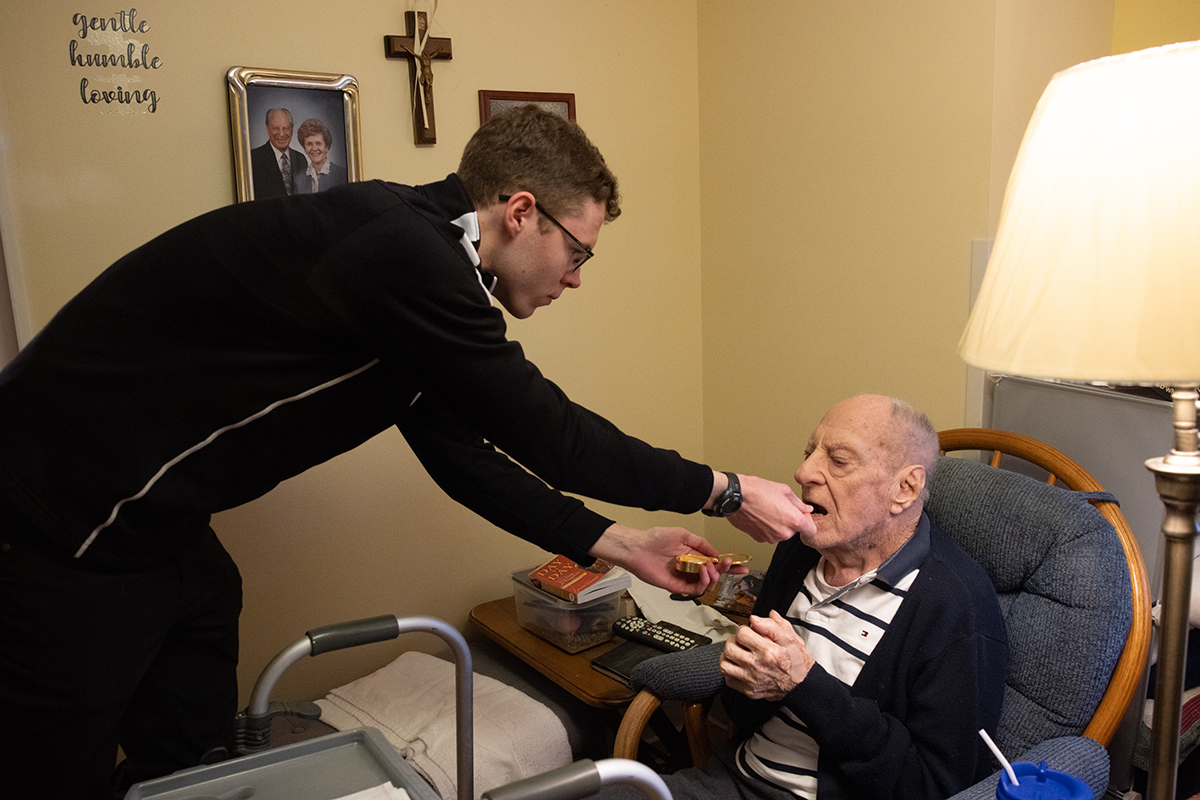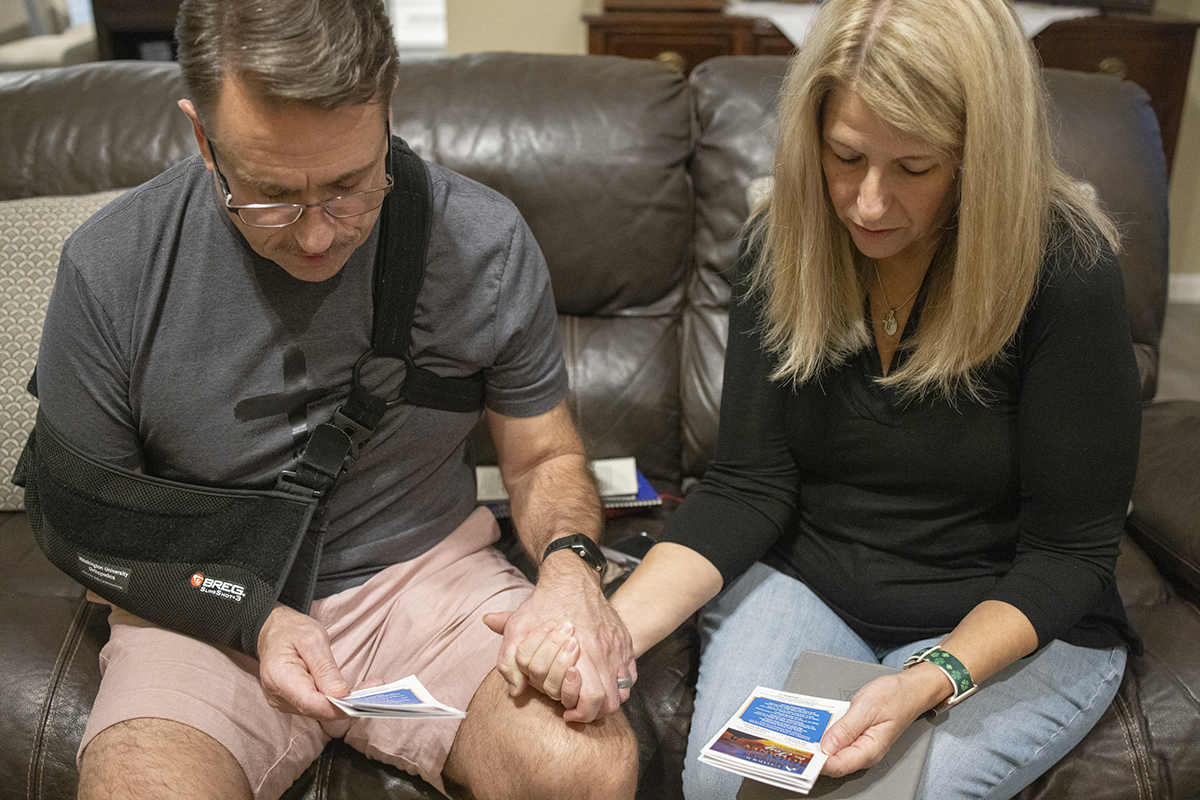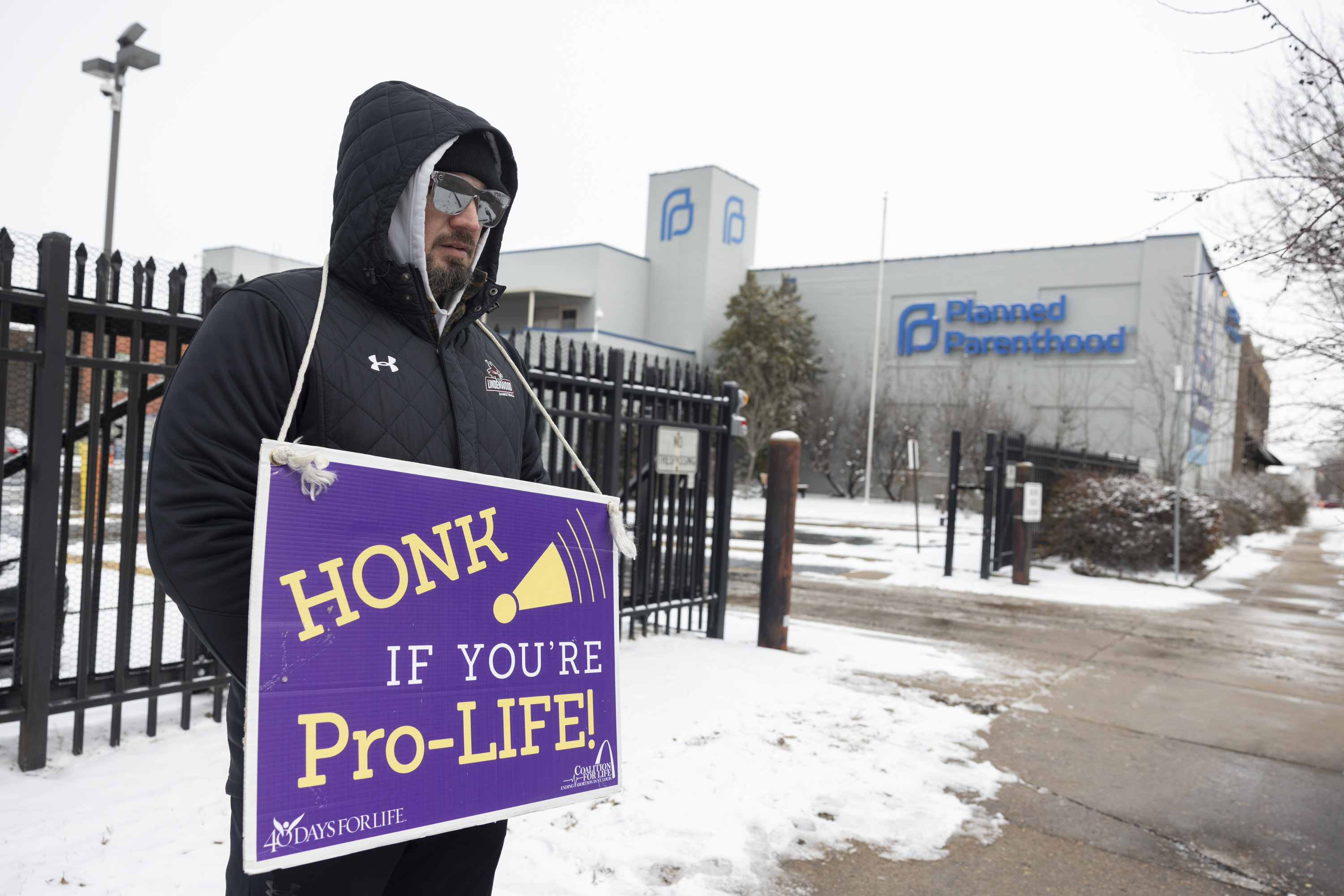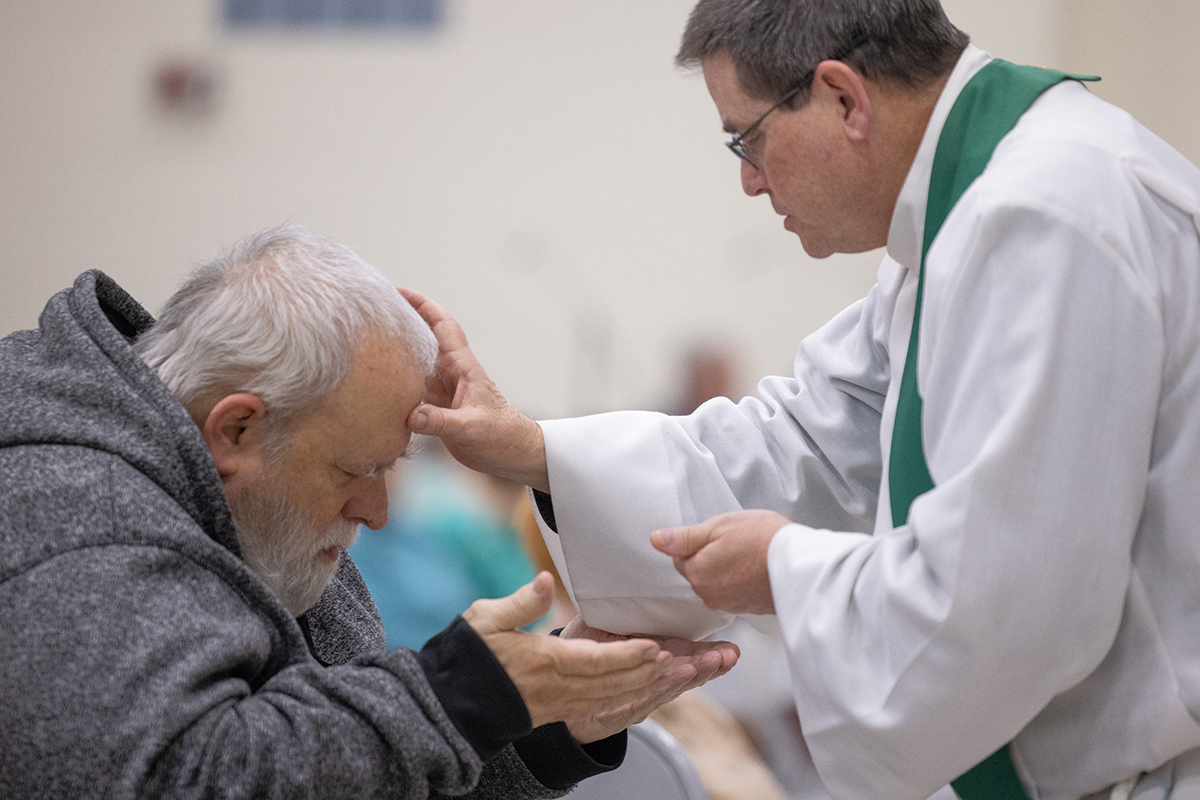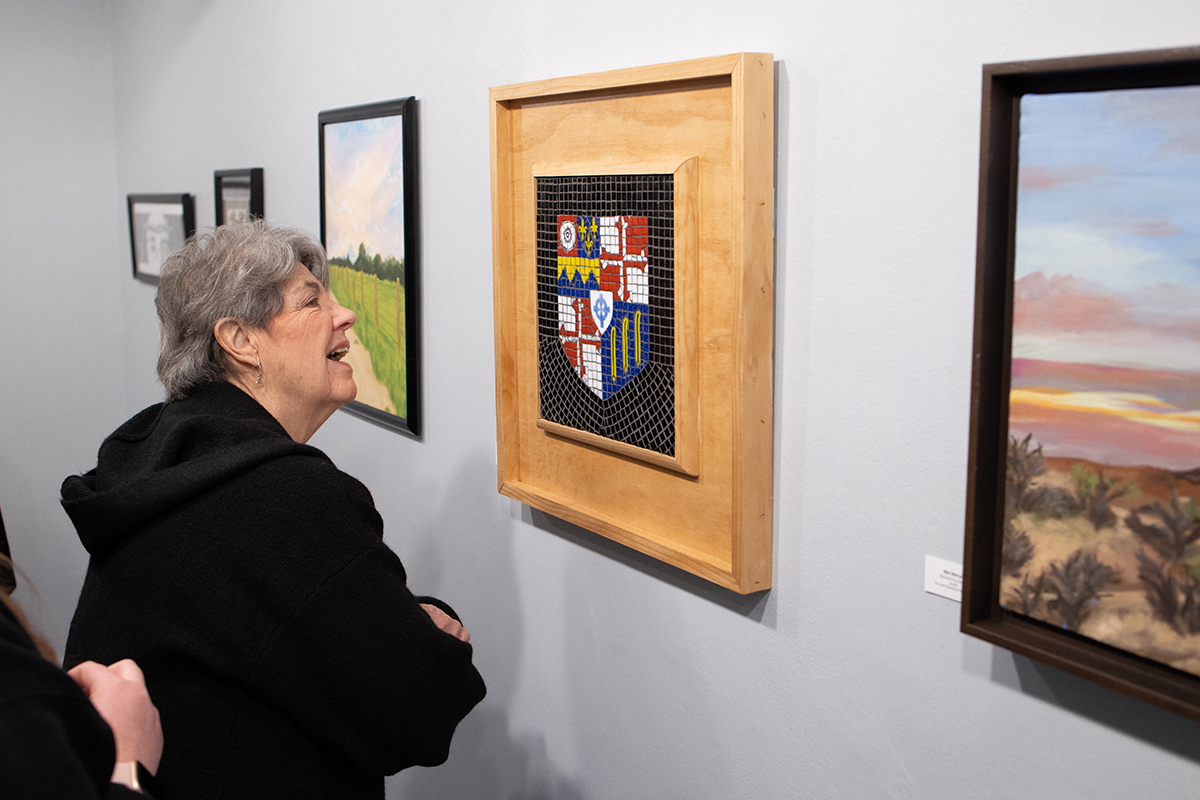Support for mothers to choose life
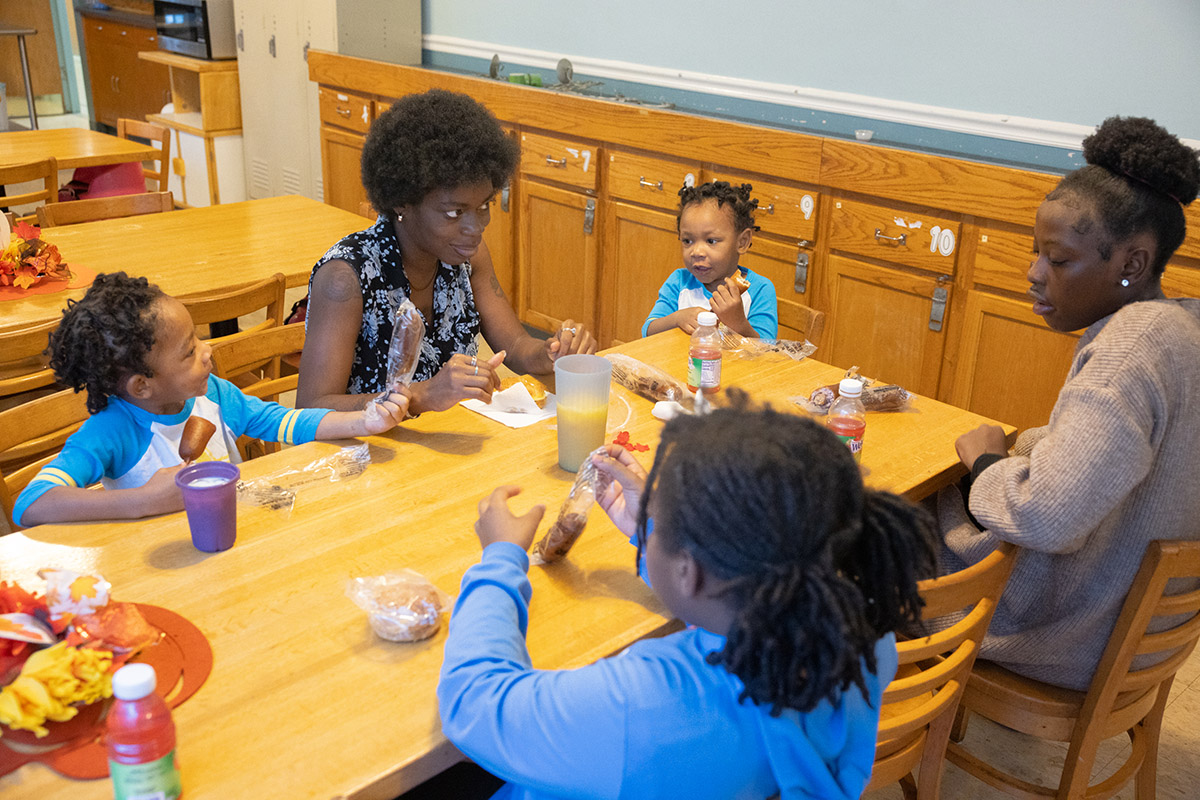
Our Lady’s Inn is one example of organizations that walk with moms to make life-affirming decisions
Displayed on the wall of Latasha Taylor’s room is a brightly colored poster with images from her baby’s 20-week ultrasound. She’s looking forward to delivering a healthy boy, due at the end of October.
Taylor has been living at Our Lady’s Inn maternity home for the past month. There, she’s found her “village,” a supportive team helping her to get back on her feet. She and her four children previously were living in a friend’s basement and for a short time slept in her van.
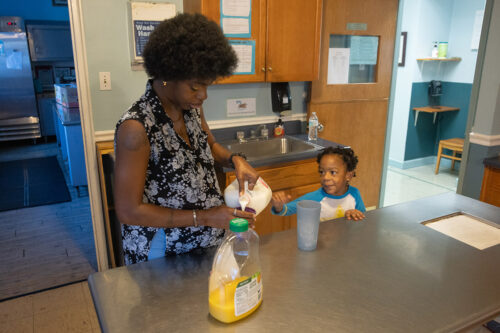
“We got here and it’s been amazing,” she said. “They’ve helped with a lot. I’m a little overwhelmed, scared. It’s been stressful dealing with the situation of a new baby and then trying to get housing. This is only a test, a stepping stone to get me to where I need to be.”
For decades, maternity homes, pregnancy resource centers and other organizations offering alternatives to abortion have accompanied pregnant and parenting women in helping them make life-affirming decisions, not only for their babies, but themselves as well. The one-on-one approach is meant to provide a support network and help them overcome some of the challenges they’re facing.
“What we try and do is help women feel empowered,” president and CEO Peggy Forrest said. Women “can do whatever we set our minds to, and so it’s really encouraging, it’s educating. It’s letting them know that they aren’t going to be on their own, that they can stay with us. And then we walk with them through whatever it is that they are needing, whether it’s help finding a new home to live, or finishing education, or helping them with transportation or maneuver legal challenges.”
Our Lady’s Inn opened more than 40 years ago when a group of women and men saw a need to provide a safe place for women who were being pressured into abortion. As a result, they opened the maternity home in 1982 to provide needed support and resources to help moms move toward self-sufficiency.
As a shelter for pregnant women and their children, Our Lady’s Inn has walked with women to help them live productive lives, reach educational goals, find work and stable housing, improve parenting skills and — when applicable — seek help for substance abuse and mental health issues. Mothers also generally receive up to two years of follow-up care after they’ve left the residence.
The organization has residences in the Dutchtown neighborhood of south St. Louis, which can take up to 16 moms and their children, and Defiance in St. Charles County, which has a capacity of 12. Both locations generally are near or at full capacity throughout the year, Forrest said.
Our Lady’s Inn recently purchased seven acres of property in west St. Louis County to build a third location. About half of the women they serve are from St. Louis County, a trend that they’ve noticed for the past eight years, Forrest said. Having a location in St. Louis County will offer better proximity to medical resources, educational and job opportunities and services for their children, she added.
One of the biggest challenges that expecting mothers face is affordable housing, Forrest said. “We see the majority of women are choosing to parent their children, rather than in decades prior, where a lot would choose adoption. So we do a lot of work helping them to prepare for that.”
Employment is another challenge. Most clients come with at least some form of entry-level work experience, but often it’s not enough to support a child on their own. Continuing education is important as they seek higher-paying jobs, Forrest said.
Walking with moms in need
The number of maternity homes in the United States has increased since the U.S. Supreme Court’s 2022 decision in Dobbs v. Women’s Health Organization, according to Heartbeat International’s Maternity Housing Coalition. There currently are more than 450 maternity homes, an 8% increase since 2022. The coalition also reported that Heartbeat-affiliated maternity homes in the U.S. have increased by 23% since the court decision that overturned Roe v. Wade.
Maternity homes are an example where the Church continues its support of mothers in need and bears witness to the dignity of all human life, especially since the overturning of Roe, and now in light of Amendment 3, which seeks to reverse Missouri’s near-total abortion ban, Archbishop Mitchell T. Rozanski said.
“The Church not only speaks out on pro-life (issues), but the Church also follows through with support of women who are carrying their babies under difficult circumstances,” he said. “If they feel they have support of a wider community, they will bring their babies to term and appreciate the gift of life that is given as well as the support of walking along with them.”
In 2019, the U.S. bishops developed a pastoral initiative called Walking with Moms in Need. The nationwide, parish-based effort helps raise awareness of the needs of pregnant and parenting mothers in their local communities. Walking with Moms in Need also has assisted parishes in communicating about the support services available to women who are thinking about whether to carry their child to term.
In St. Louis, the archdiocesan Respect Life Apostolate developed an extensive list of resources in the St. Louis area for women and men experiencing an unexpected pregnancy. A guide of organizations that offer financial, housing, emotional and/or spiritual support is available at walkingwithmomsstl.com.
Amendment 3
The wording of Amendment 3 includes a “super-right” to “reproductive freedom” and would open the door to repealing many of Missouri’s laws and constitutional provisions regulating reproductive services and technologies, argued the Thomas More Society in a September lawsuit against the proposed amendment. The Missouri Supreme Court ruled 4-3 in keeping Amendment 3 on the November ballot.
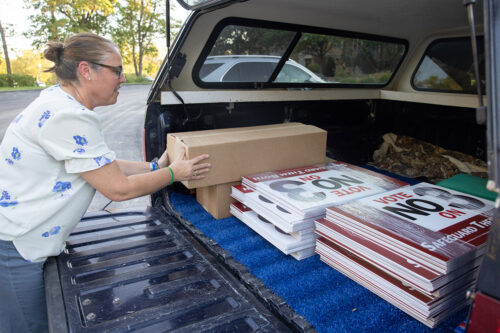
The dissenting opinion, authored by Judge Kelly C. Broniec, argued the majority opinion reached “an absurd result contrary to the plain language” of the state law requiring ballot initiative petitions to inform voters what laws or constitutional provisions could be repealed through the proposed measure, which Amendment 3 does not include.
That would include existing laws on abortion, cloning, IVF for stem-cell research, gender transition surgery and genital mutilation, the Thomas More Society said. It also would include a constitutional provision banning human cloning and IVF for the purposes of stem-cell research, the “Right to Life of the Unborn Child Act,” the “Infant’s Protection Act” — the state’s partial-birth abortion law — along with state laws that protect unborn children at viability and from abortion based on discrimination (including race, sex and Down syndrome), as well as the state’s ban on the abortion of late-term pain-capable unborn children.
Peggy Forrest of Our Lady’s Inn, one of several plaintiffs named in the lawsuit, said that she personally became involved in part because the amendment, if passed, would have the ability to take away parental rights, opening the door for minors to obtain abortions without their parents’ knowledge.
“We’re helping women raise families and be prepared to be good parents, but yet that amendment is going to take away their rights,” she said. “I have granddaughters and a grandson, and I just can’t bear the thought that somebody could get away with something like that because of this amendment.”
Another provision of the amendment states that “no person shall be penalized, prosecuted, or otherwise subjected to adverse action based on their actual, potential, perceived, or alleged pregnancy outcomes, including but not limited to miscarriage, stillbirth or abortion. Nor shall any person assisting a person in exercising their right to reproductive freedom with that person’s consent be penalized, prosecuted or otherwise subjected to adverse action for doing so.”
Forrest said that Our Lady’s Inn has worked with women who have been physically and emotionally harmed by abortion, and that if the amendment passes, it would allow doctors to avoid repercussions if something went wrong during an abortion.
Motherhood is a special gift entrusted from God, and so “we want to support those who receive that blessing of motherhood,” Forrest said. “In that journey, it’s not the circumstances that should define whether they become a mother or not. This is one way we can say to women that you can do what you were created to do and still do other things in your life.
“We follow that example of Mary, who in a very unusual situation for her, said yes to life,” she said. “We want all women to be able to say yes to life, and if providing her a home and some support and walking with her on that journey helps her do that, then that’s what we want to do.”
Walking with Moms in Need
In 2019, the U.S. bishops developed Walking with Moms in Need, a nationwide parish-based initiative to increase support for pregnant and parenting mothers in need. The effort works to ensure that any woman who finds herself unexpectedly pregnant or parenting in difficult circumstances can turn to the local Catholic Church and connect with the resources she needs. See walkingwithmoms.com to learn more about the national initiative.
Walking with Moms in Need assists parishes in communicating about the support services available to women who are thinking about whether to carry their child to term. In the Archdiocese of St. Louis, the Respect Life Apostolate has developed a list of of resources in the St. Louis area for women and men experiencing an unexpected pregnancy. A guide of organizations that offer financial, housing, emotional and/or spiritual support is available at walkingwithmomsstl.com.
Archbishop’s video on Amendment 3
Amendment 3 is a misguided proposal that would allow abortion in Missouri at any time, for any reason and could affect other state laws related to reproductive services, Archbishop Mitchell T. Rozanski said in a video posted publicly online Oct. 18.
Citing Pope Francis, he said that “abortion is an attack on life.”
The proposed amendment is “dangerous for women, unthinkable for preborn children and wrong for our state,” Archbishop Rozanski said. “When we talk about amending our state constitution, what we’re considering is very different than the legislature passing a bill that is then signed into law by the governor. Once we’ve enshrined a right in the state constitution, making a change to even a bad law is nearly impossible.”
The archbishop cites several concerns with the language of Amendment 3, which includes a provision that prevents women from holding doctors accountable in cases of medical malpractice, he said in the video.
It also would remove parental notification requirements, meaning a minor child would be able to receive an abortion without parental consent and “almost certainly open the door to state-funded access to abortion.”
“This law is radical, it is extreme, and it does nothing to protect preborn children or their pregnant mothers.”
Archbishop Rozanski also cited the Church’s efforts to support mothers and families in need in the Archdiocese of St. Louis since the 2022 Dobbs decision and healing ministries for those who have been harmed by abortion.
“We have endeavored to make it easier for women and families to say ‘yes’ to life,” he said. “I urge you to join us in walking alongside mothers and children and vote no on Amendment 3 on Nov. 5.”
Read and share our ongoing coverage of Amendment 3 at stlreview.com/3BC29O5.
Statement of the Missouri Catholic Conference on Amendment 3
We, the Catholic Bishops of Missouri, are committed to protecting the sanctity of human life in every circumstance and every stage of development. In Missouri, the dignity of life in its earliest stages is being threatened by Amendment 3, which will appear on Missouri’s November 2024 ballot. This proposed amendment to our state constitution is an extreme proposal that would allow full-term abortion with no protections for the preborn child, including when the child is capable of feeling pain.
The proposed amendment would effectively eliminate common-sense state regulations that have protected Missouri women for years. These include health and safety requirements for abortion clinics; the requirement that only a medical doctor be allowed to perform abortions in the state; and that parents of a minor be notified before she can have an abortion.
Amendment 3 would allow for unregulated abortions until viability — approximately six months into a pregnancy. After viability, the proposed amendment would create a broad mental health exception that a healthcare provider could exploit to allow abortion in the 7th, 8th, or 9th months of pregnancy.
Amendment 3 would also prohibit any type of penalty for someone who assists a person in “exercising their right to reproductive freedom.” This broad protection would prohibit women and families from suing an abortion provider who harms them.
The legalization and deregulation of abortion would represent a tragic step backward in our work to protect all human life at all stages. For these reasons, we urge Catholics and all persons of good will to oppose Amendment 3.
Our Lady’s Inn is one example of organizations that walk with moms to make life-affirming decisions
Subscribe to Read All St. Louis Review Stories
All readers receive 5 stories to read free per month. After that, readers will need to be logged in.
If you are currently receive the St. Louis Review at your home or office, please send your name and address (and subscriber id if you know it) to subscriptions@stlouisreview.com to get your login information.
If you are not currently a subscriber to the St. Louis Review, please contact subscriptions@stlouisreview.com for information on how to subscribe.

